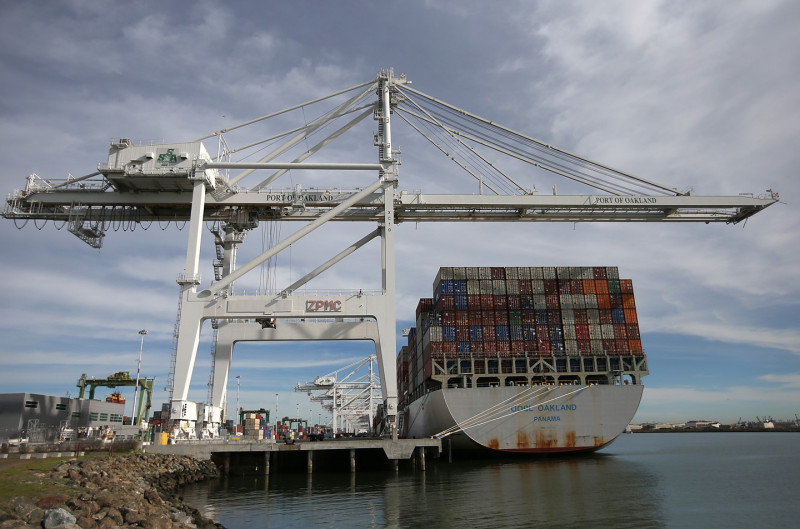Businesses that rely on the port are caught in the middle. Joanne Gomez, CFO of the manufacturing company West Bay Counters in San Francisco, said she’s lost business waiting on supplies stuck at the port.
“We can’t even get materials for the jobs that we have. So it kind of puts us at a standstill. You know, if you can’t get materials, how do you manufacture things?”
The state’s citrus industry is also feeling the effects of the labor dispute, which involves 29 West Coast ports.
KQED Central Valley Bureau Chief Sasha Khokha says it’s the height of the harvest season in a state that annually ships some $500 million worth of oranges, lemons and other citrus to Asia, Australia and New Zealand. Some of the highest-quality fruit fetches a premium price in places like Japan and Korea.
David Roth, CEO of Cecelia Packing near Fresno, told Khokha that growers who are already struggling — after a bad freeze last winter and the current drought — have been extremely hard hit.
“The export markets, we derive a couple of extra dollars per box more,” he said. “You sure want the most money you can get for this citrus.”
Roth said his company is shipping only about 25 percent of its normal load, and is not even sure if all of that is making it across the ocean before the fruit rots. He said he’s worried that even after the dispute at the ports is resolved, it could still take weeks to address the backlog of citrus shipments. And the peak growing season lasts only another six to eight weeks.
However, that might be good news for California consumers, Khokha says. More citrus could be diverted to the domestic market, resulting in lower prices at the checkout counter.
Other crops affected by the slowdown at the ports include almonds and rice.
Meanwhile, Oakland officials are hoping the arrival of President Obama’s labor secretary on Tuesday can help get contract negotiations — and cargo — moving again.
In addition to meeting with dockworkers and their employers, Labor Secretary Tom Perez is engaging mayors in port cities affected by the ongoing labor dispute. Over the weekend, Obama said Perez would take a more active role in ending the costly dispute.
Perez held the first of what will be daily conference calls with the port mayors on Monday. Oakland Mayor Libby Schaaf said Perez wanted to hear about the impact of port slowdowns on the city.
“He had no idea that we literally had California produce rotting on decks because these ships are so delayed in Southern California, that they’re just turning around and heading back to Asia without coming up to make their originally planned stop in Oakland.”
Schaaf said Perez is exploring relief measures, such as temporarily relaxing time standards for the movement of goods and whether cities might offer training wages to dockworkers.
Schaaf said the conference calls will also touch on potential actions that mayors could take as a group.
William Gould, Stanford law professor emeritus and former chairman of the National Labor Relations Board, told KQED’s Stephanie Martin Taylor that he’s struck by the fact both sides have overcome major differences — such as wages, health care and contracting out — that are normally formidable in the bargaining process.
“It seems as though it’s all boiling down to one issue in Southern California — and that is the choice of an arbitrator, and the concern about rulings that he’s issued dealing with stoppages that have taken place down there,” Gould said.
He believes that the labor secretary, because of the prestige of the president, has a good shot at bringing the parties together. Gould hopes so.
“What we’re doing is losing a lot of the work that we have to ports like Houston, as employers begin to look to other ports where they can ship their goods,” he said.

